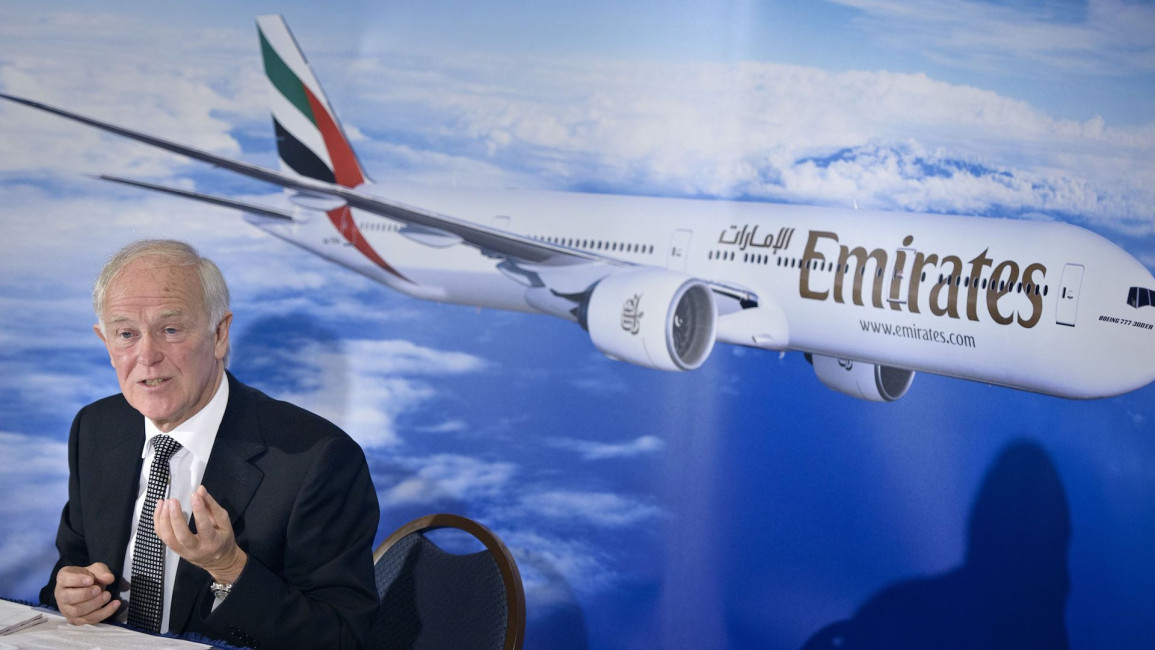Emirates says it won’t withdraw from US despite cutback
Emirates remains committed to the US market despite plans to slash 20 percent of its flights in the wake of tougher security and visa measures put in place under the Trump administration, the airline’s president said Thursday.
In his first interview since announcing the cutbacks, Tim Clark told the Associated Press that the Mideast’s biggest carrier has no intention of pulling out of the 12 US cities to which it currently flies.
He said the decision to cut flights to five cities was a temporary response to a drop in demand, and does not signal a desire by Emirates to halt its expansion in the world’s largest aviation market.
“This is not a permanent arrangement. ... I do not see this as a paradigm shift,” Clark said. “Obviously our plans remain in place and we are as bullish and as confident about the US markets as we have been.”
Emirates said on Wednesday it was cutting 25 of 126 weekly flights it operates to the US from Dubai starting next month, blaming the move on stiffer US security measures and attempts to ban travelers from some Muslim-majority nations since President Donald Trump took office.
Emirates’ base at Dubai International Airport, the world’s busiest international air hub, is a major transit point for travelers affected by Trump’s executive order suspending visas to people from Iran, Libya, Somalia, Sudan, Syria and Yemen. Like an earlier ban that also included Iraqi citizens, it has been blocked from taking effect by the courts.
Dubai was also one of 10 cities in Muslim-majority countries affected by a ban on laptops and other personal electronics in carry-on luggage aboard US-bound flights.
That surprise decision left Emirates scrambling to implement new procedures allowing passengers to use their devices up until boarding. It also rolled out a service to lend tablet computers to first- and business-class passengers on US-bound flights.
Emirates will comply with all US security directives and is “not in a position to judge whether the United States are right or wrong,” he said.
Clark declined to detail how much of a financial hit the Dubai government-backed carrier has taken over the past three months, but he described the falloff in passenger demand as “significant.”



